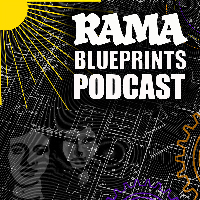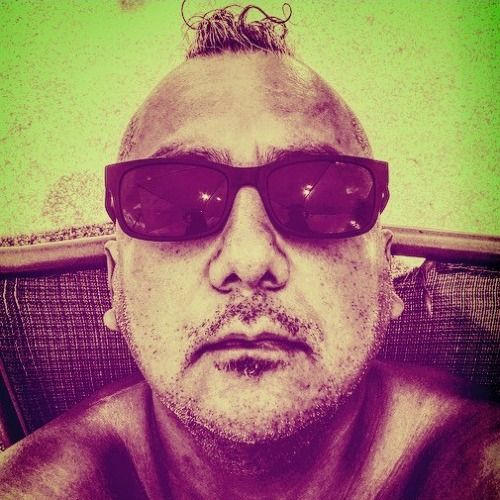full
eXtra History: Jim Queen
In this installment of the RAMA Blueprints eXtra, we listened to the family origins and the San Francisco roots of Real Alternatives Program founder Jim Queen in his own words.
Listen to these eXtras to get a deeper understanding of the RAMA Blueprints podcast. You can listen to Roots of RAP (part 1): EMUNYO how Jim Queen began his youth empowerment work and his RAP principles and philosophy that he developed for the Real Alternatives Program.
Mentioned in this episode:
RAMA Ep05 Promo
Transcript
In this installment of the Rama Blueprints Extra, we listened to the
Speaker:family Origins and the San Francisco roots of Real Alternatives Program
Speaker:founder Jim Queen in his own words.
Jim Queen:My background is that in growing up in Maryland, I come from
Jim Queen:a group of people called Wesorts.
Jim Queen:Wesorts are people that are black and white mixture, but they
Jim Queen:don't consider themselves black.
Jim Queen:Don't consider themselves white.
Jim Queen:My father got outta the service.
Jim Queen:My mom decided she wanted to to pass for white.
Jim Queen:We could pass for white.
Jim Queen:So that's how I moved from where I lived was like a little farm I lived on.
Jim Queen:My dad was in a service to Tacoma Park, Maryland, where we passed for white.
Jim Queen:So I couldn't talk about my family out there.
Jim Queen:You know, we go visit them, but I couldn't say that that was always
Jim Queen:what was hysterical was when the garbage man came, other people
Jim Queen:came, "they passing , they passing."
Jim Queen:Right?
Jim Queen:And so my whole experience there was a real confusion about that.
Jim Queen:And up through high school then, you know, I have a girlfriend.
Jim Queen:I couldn't say who I was, you know?
Jim Queen:Right, right.
Jim Queen:You got leprosy.
Jim Queen:What's, what's going on?
Jim Queen:So I couldn't say that.
Jim Queen:So it really made me really distraught, confused, and almost suicidal, you know?
Jim Queen:Right.
Jim Queen:You know, I was a real good student at the beginning, you know?
Jim Queen:Right.
Jim Queen:I was president of my class all the time, you know?
Jim Queen:Growing up.
Jim Queen:Then by the time I got to high school, then that's when I
Jim Queen:began to get totally bombed out.
Jim Queen:I started being as smart ass.
Jim Queen:Walked across the desk.
Jim Queen:Just acted out, right?
Jim Queen:And so finally in 11th grade I dropped out.
Jim Queen:After I dropped out of high school and I started just getting
Jim Queen:a job, got a job doing roofing construction and other stuff.
Jim Queen:Then I started to get into service and my parents were gonna
Jim Queen:sign for me to get in at 17.
Jim Queen:So I do that.
Jim Queen:Then one day in comes these two people, two white guys come to the house.
Jim Queen:I say, Well, we see a discrepancy here.
Jim Queen:Cause on my birth certificate it says, colored said, We don't understand.
Jim Queen:So my mom says, "There's something wrong!"
Jim Queen:You know, she gets all indignant.
Jim Queen:So that squashed it from me going into service two years later.
Jim Queen:That's how I went back and got in.
Jim Queen:When I went initially went to the service, I came out and
Jim Queen:said I was, you know, mixed and.
Jim Queen:And it was felt such a relief.
Jim Queen:Now, if I go back to Maryland, my mom and dad were still passing.
Jim Queen:I can't go back and dh-da, you know, you know, be who I want
Jim Queen:to be or who I am, you know?
Jim Queen:Right.
Jim Queen:And so I decided, well, you know, I'll just live out here.
Jim Queen:Stand out here.
Jim Queen:So I came to San Francisco.
Jim Queen:That's why, that's what my ultimate reason for coming for San Francisco.
Jim Queen:I was born in Maryland.
Jim Queen:Lived in Maryland until I was about 19 years old.
Jim Queen:Then I joined the Navy, became a medic in the Navy, got sent to Camp Lejune,
Jim Queen:North Carolina at a hospital in Camp Lejune, North Carolina from 1958 to 1960.
Jim Queen:In 1960, they came through and said, if anybody wants to volunteer to
Jim Queen:be a medic with the Marine Corps, cause the Navy and the Marine Corps
Jim Queen:are like sister organizations.
Jim Queen:And I said, "Okay."
Jim Queen:So then they said, "Okay."
Jim Queen:They sent me to Camp Pendleton, California, which is the
Jim Queen:southern part of California.
Jim Queen:And there I joined the first recon, which like Special Forces and became a medic
Jim Queen:with Special Forces there for two years.
Jim Queen:Spent six months in Okinawa.
Jim Queen:I was very blessed, you know, cuz usually you get called to go
Jim Queen:to Vietnam and I lucked out, did not get a call to go to Vietnam.
Jim Queen:And I thank God for that.
Jim Queen:But one of the things when I was in Camp Lejune, there was a young guy there
Jim Queen:who kept raving about San Francisco.
Jim Queen:He'd always say, "Well, you should go to San Francisco.
Jim Queen:You'd love it."
Jim Queen:And I remember that.
Jim Queen:So I was in a Camp Pendleton one time and I decided to come to San Francisco
Jim Queen:on leave, and I fell in love with it.
Jim Queen:You know, the street cars, the pastel colors, you know, East
Jim Queen:coast, everything's brick.
Jim Queen:So I really fell in love with the city itself.
Jim Queen:I stayed at there for about two weeks, and so that's how I decided I liked it a lot.
Jim Queen:When I got out of the service, I decided to stay in California.
Jim Queen:Moved to San Francisco, and that's how I started my roots in San Francisco.
Jim Queen:Started City College, worked at the post office as a temporary at the post office.
Jim Queen:Then I went to State College.
Jim Queen:Then after I graduating State college, always had this dream
Jim Queen:about working on freighters.
Jim Queen:One of my buddies, Tommy Kim, which fits into this story, his father was an
Jim Queen:engineer on ships and he said, There's a, But it's hard to get into a ship.
Jim Queen:You gotta be, you have to be fixed, you have to have a union
Jim Queen:card or you have to have some.
Jim Queen:So the only way you can do it is somebody fixes it.
Jim Queen:So they fixed it for me to get my, get my card.
Jim Queen:So I started to ship out.
Jim Queen:So I shipped out for a while and in 67 I came home.
Jim Queen:And so I decided, well, let me cop a gig here in the city.
Jim Queen:And so there was a counseling position open for the Mayor's Summer Youth Program.
Jim Queen:So I became part of the Mayor's Summer Youth Program.
Jim Queen:Started out as a counselor.
Jim Queen:And the educational coordinator resigned.
Jim Queen:They may be educational coordinator.
Jim Queen:The coordinator with the overall thing became resigned and I
Jim Queen:became the coordinator for the overall program and the Mission.
Jim Queen:And I really liked the idea of working with young people.
Jim Queen:First time I'd done that, it was very, very interesting.
Jim Queen:I liked it a lot.
Jim Queen:So that's how I became part of that.
Jim Queen:Listen to these extras to get a deeper understanding of
Jim Queen:the Rama Blueprints podcast.
Jim Queen:You can listen to how Jim Queen began his youth empowerment
Jim Queen:work and his RAP principles and philosophy that he developed for



